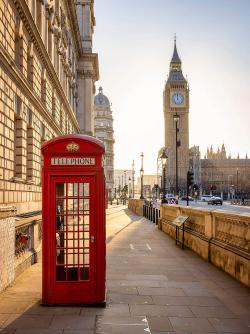Lights Out: The Power of Sleep
Sleep is one of the most important bodily processes for physical and mental health. But did you know better sleep can even affect your spiritual life?
The contrast between darkness and light holds a fascination for many, even the youngest among us. Turn a toddler loose on a light switch and you’ll see this clearly—or perhaps you won’t! And every day, we witness on a much grander scale the works of God’s hands found in the separation of light from dark.
If you were to look at planet Earth from space, you would see the shadows of its darkness slowly sliding east to west, caused by its rotation away from the Sun’s light. And as sunset advances, another wave of diurnal animals curls up and conks out to rest under the darkness of night. Natural light/dark cycles perceived through eyes (and possibly somewhat through skin) stimulate areas of the brain that control the sleep hormone melatonin and our brain’s natural sleep cycles. Your Creator moves heaven and earth, in part, to give His creation sleep (Genesis 1:18; Psalm 127:2).
Before electricity, that wave of sleep would also include human beings. Today, we might just as likely witness a wave of glowing smartphone screens illuminating human faces as a flurry of thumbs set the next morning’s alarms, open sleep-tracking apps, or search the Web with the keyword insomnia. According to the Centers for Disease Control, about one in three adults in the United States reports not getting enough rest or sleep, and consequences are alarming in their breadth. Sleep deficiency has been linked with increased risk of diabetes, heart disease, obesity, depression, vehicular accidents, and even deterioration in relationships and job performance. From textile innovator Richard Arkwright’s nonstop industrial production to Thomas Edison’s lighting up our nights, and from television to smartphones, a long war has been waged on our sleep.
Sleep and Mental Health
Our masterful Creator designed sleep to fulfill important functions. Much like recharging your cellphone battery, sleep “recharges” several systems. The brain is one organ particularly responsive to the quality and duration of sleep. Nearly everyone has experienced the rejuvenating effect of a good night’s sleep—the whole world takes on a rosier appearance when we awaken from one. Toddlers and even adults are less cranky when better rested.
A 2020 study published in the Journal of Sleep Research demonstrated sleep’s effect on emotions. Subjects experienced five nights of deficient sleep followed by five nights of full sleep. Lead researcher Daniela Tempesta noted that subjects rated various images as more troubling when sleep-deprived than when fully rested. Further, when sleep deficiency is sustained over a period of several nights, connections between the “siren” portion of the brain, called the amygdala, and the prefrontal cortex—the willful, decision-making center of the brain—are weakened. This may reduce “top-down” regulation of our emotions by our will. Researchers using brain imaging find that sleeping reduces activity of the amygdala. When the lights go out, the alarm portion of our brain gets reset. Emotions are recalibrated and placed back under control of the logical, decision-making areas of our brain.
Most of us have had an electronic device bog down until we “clear the cache.” Likewise, the brain has been designed by our Creator with the capacity to flush itself of waste, and this process is enhanced by sleep. In 2013, researchers at University of Rochester Medical Center used imaging to look at the difference between sleeping and wakeful mice. In particular, they focused on cerebrospinal fluid (CSF), a specialized fluid that cushions the brain and spine within the bony skull and vertebral column. Neuroscientist Maiken Nedergaard and her colleagues were surprised to find a dramatic surge in the amount of CSF in the brain of sleeping mice. The floodgates regulating flow of CSF were thrown wide open during sleep and closed when awake. Neuroscientists tell us that this flow of CSF into the brain and subsequent flush of CSF out of the brain, ultimately into the circulatory system, clears brain-eroding toxins such as the protein amyloid-beta. Mice cleared much more amyloid-beta from their brains when sleeping than when awake. Rhythms of optimal sleep and wake cycles are critical to flushing the brain of toxins and metabolic waste products.
Rest for the Weary—More Than Just a Physical Need
As various support groups teach those struggling with addiction, we should try not to get too hungry, angry, lonely, or tired (H.A.L.T.). And this is not just for the benefit of our physical health and life. Our spiritual walk and life choices can also be jeopardized if we fail to give attention to our basic human needs in a disciplined, accountable way. Without adequate sleep, our emotions are intensified, and critical thinking becomes diminished.
With all the hurdles that modern life can throw at our sleep, statistics indicate that many of us will have sleep challenges. There are many ways in which we can and should work to resolve or compensate for those challenges—but even as we do, many of us continue to struggle, perhaps with the common, age-related decline in sleep quality.
God knows that we need rest. Jesus Christ, the Rock of Israel, fashioned and designed not just our sleep/wake cycles and our circadian rhythms; in His wisdom, He designed every cycle and rhythm woven into the fabric of the human body, mind, and heart. Each of us is the unhurried work of our Creator’s steady hands. By His deliberate voice, long ago He fashioned human lungs to draw in air and push it out. He spoke and designed your heart to autonomously pound out beats even while you are asleep and indifferent. Your Creator spoke every aspect of reality into existence, even the brain that dreams your dreams.
True Rest and Restoration for All
Few if any human beings today will see more than 40,000 rotations of the Earth before they fall into the sleep of death—and some far less than that (Psalm 90:10; Hebrews 9:27). Death is a state where there is no heartbeat, no breath, no dreams, and no consciousness (Ecclesiastes 9:10; Psalm 6:5; 88:11–12). All the streaming social media posts, social justice and equality warriors’ protests, and feeble attempts at lasting meaning vainly pass (Psalm 115:17). Despite myths of zombies or immortal souls, when you are laid to rest in the grave or cremation urn, you are not “undead.” When you die, you are simply dead (Ecclesiastes 9:5). The “lights are out.”
Does God have a plan for a rest that is not corrupted by man and his contrived modern life? When will we get that rest? And who will awaken you after all goes dark?
Jesus Christ and God the Father have plans for you (Jeremiah 29:11). They plan to awaken you to a lasting rest (Matthew 11:28–29)—a rest to come that no human being has yet experienced (Hebrews 4:9). There is a time spoken of glowingly as a rest under the rule of God—a rule that will not end (Daniel 2:44).
You likely give some thought to waking up for work tomorrow. Why not give some thought to the possibility of awakening to eternity (James 4:14)? You owe it to yourself to study and understand the Bible without delay (2 Timothy 3:16–17); tomorrow may come more quickly than you planned (Romans 13:11).






